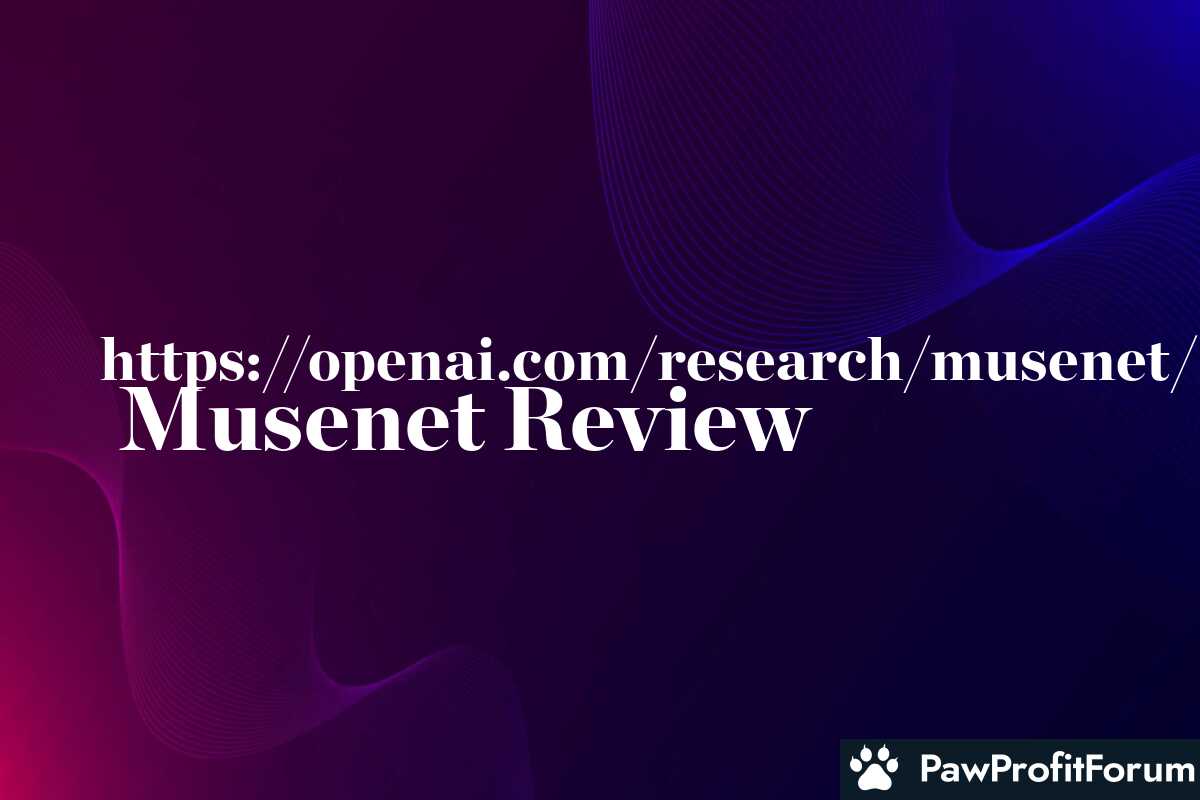INTRO
MuseNet, a deep neural network developed by OpenAI, stands out in the field of artificial intelligence and music composition. It has the ability to generate 4-minute musical compositions with 10 different instruments. This innovative project pushes the boundaries of what AI can achieve in creative domains, offering a glimpse into the future of music creation and AI's potential in artistic expression. MuseNet not only composes music but also does so in various styles, blending classical compositions with contemporary sounds, demonstrating its versatility and adaptability.
All You Need to Know and How it Works
MuseNet uses a deep neural network trained on a massive dataset of MIDI files. This allows it to learn patterns and structures in music from various genres and composers. When generating music, MuseNet predicts the next note or chord based on the preceding sequence, iteratively building a complete composition. The model can handle multiple instruments, harmonies, and rhythmic variations, creating complex and engaging musical pieces. Users can interact with MuseNet by providing initial prompts or style preferences, influencing the generated output.
What Makes Musenet Stand Out?
How to Maximize Your Experience on Musenet
Why Trust Musenet?
MuseNet is a project by OpenAI, a leading AI research organization known for its commitment to advancing AI safely and responsibly. OpenAI's reputation for innovation and rigorous research lends credibility to MuseNet. The project has been documented in research papers and shared with the public, allowing for transparency and scrutiny of its methods and results. While AI-generated music may not replace human composers, MuseNet provides a valuable tool for exploration, inspiration, and education in the field of music.
FAQs
SUMMARY
MuseNet is a groundbreaking project that showcases the potential of AI in music composition. Its ability to generate complex, multi-instrumental pieces in various styles makes it a valuable tool for musicians, researchers, and anyone interested in the intersection of AI and art. While AI-generated music is still evolving, MuseNet offers a compelling glimpse into the future of creative expression.
PawProfitForum does not endorse communities that promise unrealistic returns through potentially unethical practices. We are committed to promoting safe, informed, and ethical participation in the cryptocurrency space. We urge our audience to remain cautious, perform thorough research, and consider the broader implications of their investment decisions. All the above reviews include unverified information. Please conduct your own research. Share your feedback
MuseNet, a deep neural network developed by OpenAI, stands out in the field of artificial intelligence and music composition. It has the ability to generate 4-minute musical compositions with 10 different instruments. This innovative project pushes the boundaries of what AI can achieve in creative domains, offering a glimpse into the future of music creation and AI's potential in artistic expression. MuseNet not only composes music but also does so in various styles, blending classical compositions with contemporary sounds, demonstrating its versatility and adaptability.
All You Need to Know and How it Works
MuseNet uses a deep neural network trained on a massive dataset of MIDI files. This allows it to learn patterns and structures in music from various genres and composers. When generating music, MuseNet predicts the next note or chord based on the preceding sequence, iteratively building a complete composition. The model can handle multiple instruments, harmonies, and rhythmic variations, creating complex and engaging musical pieces. Users can interact with MuseNet by providing initial prompts or style preferences, influencing the generated output.
What Makes Musenet Stand Out?
- Ability to generate 4-minute compositions
- Support for 10 different instruments
- Diverse range of musical styles, from classical to contemporary
- Deep neural network architecture for complex musical patterns
- Interactive user input for customized compositions
How to Maximize Your Experience on Musenet
- Explore the different musical styles and instrument combinations.
- Experiment with initial prompts to guide the composition.
- Analyze the generated music to understand MuseNet's creative process.
- Share your creations and insights with the AI music community.
Why Trust Musenet?
MuseNet is a project by OpenAI, a leading AI research organization known for its commitment to advancing AI safely and responsibly. OpenAI's reputation for innovation and rigorous research lends credibility to MuseNet. The project has been documented in research papers and shared with the public, allowing for transparency and scrutiny of its methods and results. While AI-generated music may not replace human composers, MuseNet provides a valuable tool for exploration, inspiration, and education in the field of music.
FAQs
- Q: What types of music can MuseNet generate?
A: MuseNet can generate music in various styles, including classical, jazz, pop, and rock, among others. - Q: How many instruments can MuseNet handle?
A: MuseNet can handle up to 10 different instruments in a single composition. - Q: Is MuseNet's music truly original?
A: MuseNet's music is generated based on patterns learned from its training data. While it's not entirely original in the human sense, it can create unique and novel compositions.
SUMMARY
MuseNet is a groundbreaking project that showcases the potential of AI in music composition. Its ability to generate complex, multi-instrumental pieces in various styles makes it a valuable tool for musicians, researchers, and anyone interested in the intersection of AI and art. While AI-generated music is still evolving, MuseNet offers a compelling glimpse into the future of creative expression.
PawProfitForum does not endorse communities that promise unrealistic returns through potentially unethical practices. We are committed to promoting safe, informed, and ethical participation in the cryptocurrency space. We urge our audience to remain cautious, perform thorough research, and consider the broader implications of their investment decisions. All the above reviews include unverified information. Please conduct your own research. Share your feedback







